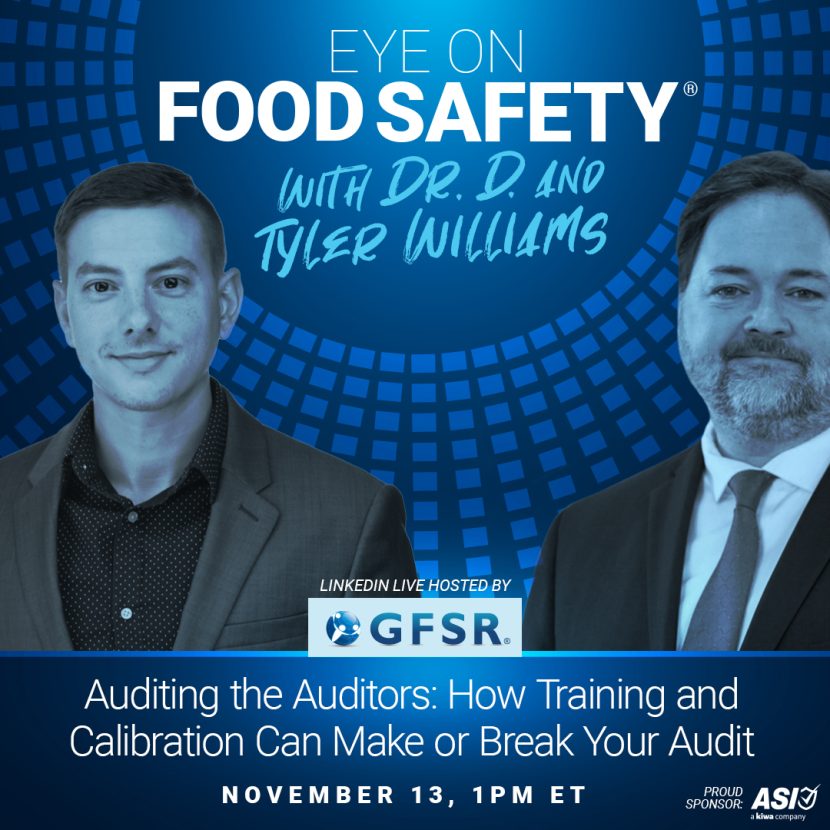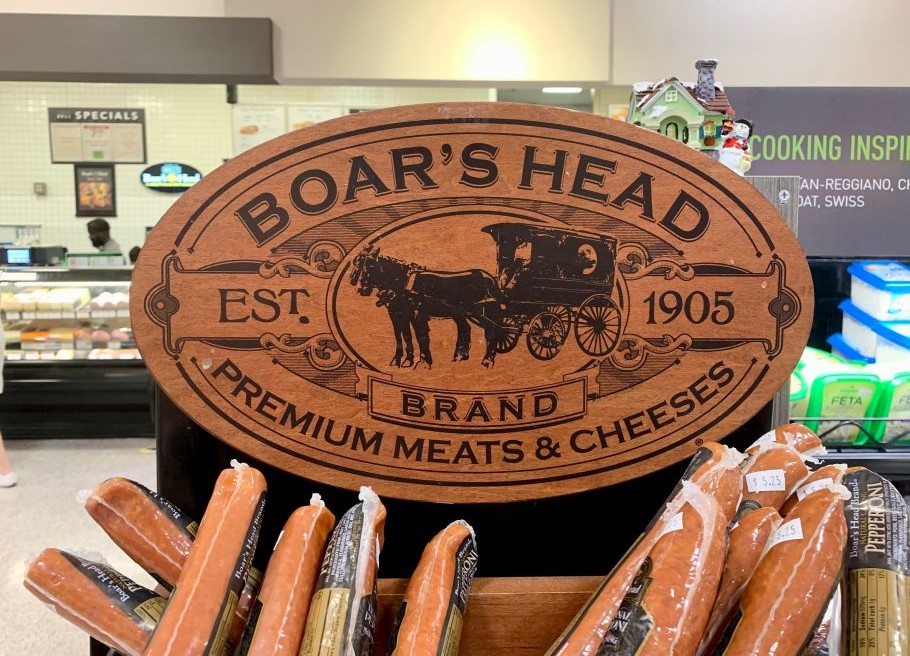Audits Revealed: Uncovering the Myths and Realities of Food Safety Assessments with Tyler Williams
Transcribed from the Eye on Food Safety Podcast
Food safety audits are often misunderstood, yet they play a pivotal role in ensuring the safety and integrity of the global food supply chain. In November 2024’s episode of the Eye on Food Safety Podcast, Tyler Williams, CEO of Kiwa ASI, shed light on the realities of audits, dispelled common myths and addressed challenges like the need for unannounced audits and attracting new talent to the field.
As the leader of Kiwa ASI, a prominent third-party certification and inspection company, Williams first emphasized the importance of audits in providing independent verification of compliance and driving continuous improvement.
“Audits provide that third-party verification that you’re doing something compliant or according to your requirements or someone else’s requirements,” he said. “They also help with continuous improvement by identifying non-conformances and suggesting ways for you to improve your organization.
Because the audit process is often misunderstood, Williams and our host, Dr. Darin Detwiler, played a game of “myth or truth” with the audience. Many of those who work in the food industry harbor misconceptions about the role and capabilities of auditors.
One of the most prevalent myths, as Williams pointed out, is the belief that auditors have the power to shut down a facility.
“That is a common misconception,” he said. “We do not have the ability to shut your facility down. That information is actually confidential, and we only report it to the facility itself, unless it’s a GFSI scheme, in which case it might be put on a public database.”
We do our best to look at everything we can in the amount of time we’re there, but we can’t see everything.
Another myth addressed was the notion that auditors want organizations to perform well on audits, as long as they deserve it. Williams confirmed that this is indeed the truth.
“When you go into a facility, you can tell within the first 30 minutes if this is going to be a long day with a lot of non-conformances, or if this is going to be a smooth audit because the site has their stuff together,” he said. “We’re very happy when our sites perform well because our whole goal is to make sure the food supply chain is safe.”
The audience also explored the idea that audits are merely a snapshot in time, as auditors are typically on-site for 1 to 5 days. Williams explained that audits can only provide a limited view of a facility’s operations.
“We have a limited amount of time depending on the standard, the size of the facility, the scope of the audit, etc.,” he said. “We do our best to look at everything we can in the amount of time we’re there, but we can’t see everything.”
When it came to the notion that auditors can be punished by their certification body for writing too many or too few non-conformances, Williams categorized that as a myth.
“We do not punish our auditors for writing too few or too many non-conformances,” he stated. “However, what we don’t like to see is (a score of) 100 percent. It doesn’t mean that sites can’t achieve 100 percent, but it does raise a red flag to our technical department to look at that audit report more thoroughly during the review process.”
“So, while auditors won’t get in trouble, if there is a 100 percent, it could be time for retraining or recalibrating to make sure they’re aligned with the standards requirements,” he added.
Perhaps one of the most concerning myths is the belief that auditors are out to get organizations.
“I’m glad there was a lot of people that said that’s a myth, because I probably get at least one email a month about a site arguing with their score, saying that we’re just out to get them, and we just don’t like their company for whatever reason,” he said.
“A lot of times it’s that they need to understand the audit requirements better. We’ll ask ‘what’s your interpretation of it? Do you see that we got this wrong? and typically they’re like, ‘Ah, you were right. We just had a misunderstanding,’” Williams added.
Addressing Pitfalls and Challenges in Auditing
Beyond addressing common myths, Williams delved into the challenges within the auditing world, noting that one of the primary issues is the need for more unannounced audits.
“It is a snapshot in time, and I think that goes hand in hand with audits being announced,” he said. “In a perfect world, I would have every single audit, no matter what the industry is, be unannounced, because that’s the really the only true way you can see how a company is doing.”
The shortage of qualified auditors was another significant concern raised during the conversation. Williams emphasized the importance of creating a clear career path for food safety auditors to attract and retain talent in the industry.
“We really need the supply there,” he said. “And so, one of the things that we’re doing at Kiwa ASI is trying to work with universities, trying to work with standard owners, with certification program owners, and trying to get everyone in the industry on board with creating a true career path, as well as offering various scholarships to young people.”
When asked what he would change if he had a magic wand, Williams shared two key priorities: creating a degree or official certificate program for food safety auditors and making all audits unannounced.
This conversation, and all the previous episodes of Eye on Food Safety with Dr. D., are available for listening on Apple Podcasts and Spotify, and video recordings of the live event can be viewed on demand with a Premium Subscription from GFSR.

-
 FeaturedRisk management
The Cost of a Breach: What a Cyberattack Could Mean for Food Safety Recalls
FeaturedRisk management
The Cost of a Breach: What a Cyberattack Could Mean for Food Safety Recalls
-
 FeaturedRisk management
Securing the Food Chain: How ISO/IEC 27001 Strengthens Cybersecurity
FeaturedRisk management
Securing the Food Chain: How ISO/IEC 27001 Strengthens Cybersecurity
-
 FeaturedRisk management
Revolutionizing Food Safety Training: Breaking Out of the “Check-the-Box” Mentality
FeaturedRisk management
Revolutionizing Food Safety Training: Breaking Out of the “Check-the-Box” Mentality
-
 GFSI Standards
GFSI 2025: Building Trust, Tech-Forward Solutions, and Global Unity in Food Safety
GFSI Standards
GFSI 2025: Building Trust, Tech-Forward Solutions, and Global Unity in Food Safety
-
 FeaturedFood Safety
Integrated Pest Management: Strategies to Protect Your Brand’s Reputation
FeaturedFood Safety
Integrated Pest Management: Strategies to Protect Your Brand’s Reputation
-
 FeaturedFood Safety Culture & Training
No Open Door Policy: Challenges That Impact Pest Control in Food Processing Plants
FeaturedFood Safety Culture & Training
No Open Door Policy: Challenges That Impact Pest Control in Food Processing Plants




